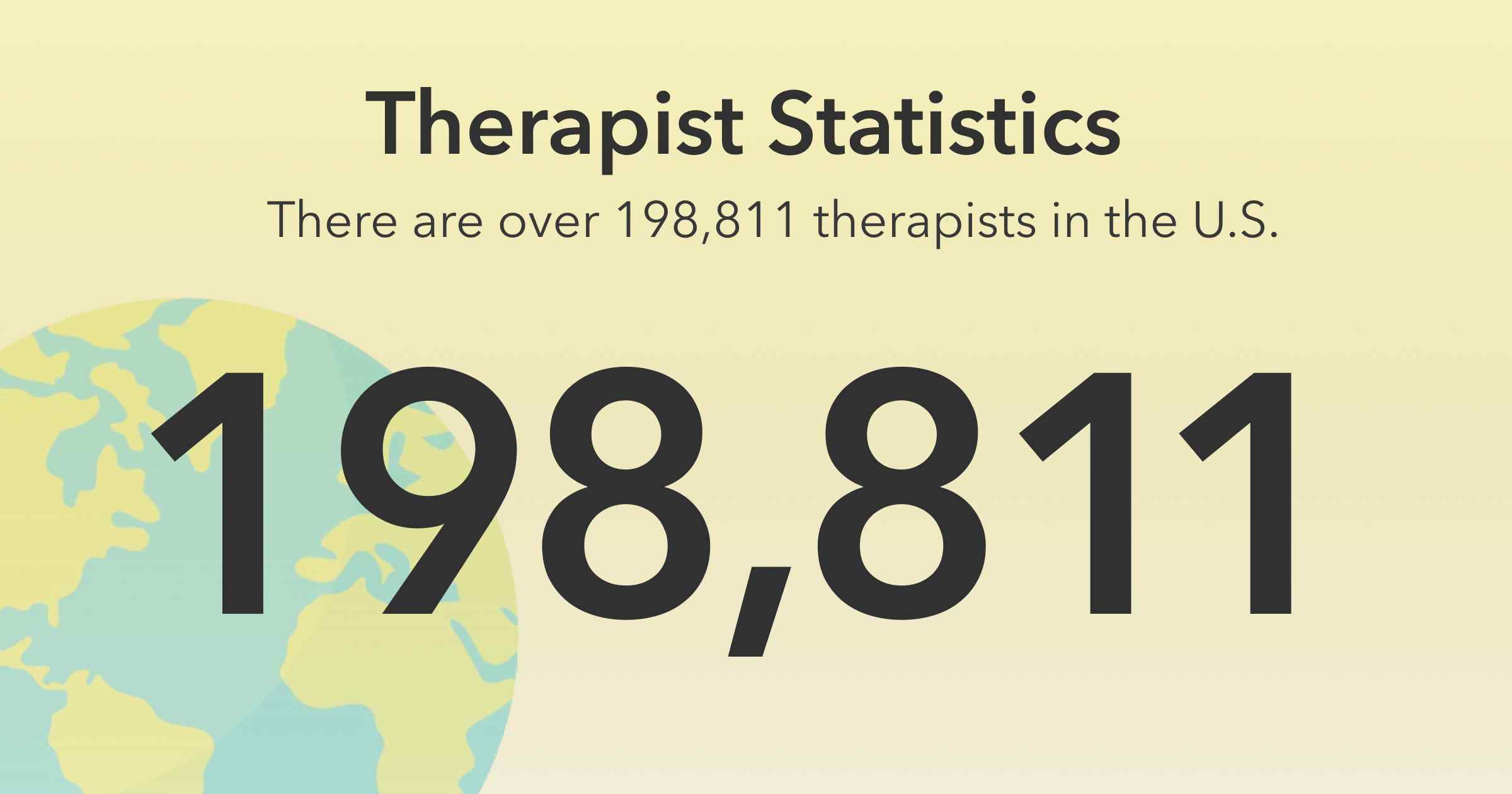- Reach Our Healthcare List Expert +1 (786) 408 5757
Therapy offers a safe and confidential space for individuals to explore their thoughts, emotions, and experiences with a trained professional. In our journey through life, where we all face a multitude of challenges and struggles that can sometimes feel overwhelming. Whether it's coping with anxiety, managing relationship issues, or navigating through the complexities of our own emotions, having someone to provide support and guidance can make all the difference.

However, finding the right physical therapist is crucial to ensure that you receive the support and tools you need to thrive. Just as every individual is unique, so too are therapists, with varying areas of expertise, approaches, and styles of therapy. From LMSW to PsyD to MD and PMH RN, it's easy to get lost in the alphabet soup. In this blog, we aim to demystify the various professionals who provide mental health therapy and offer guidance on finding the perfect therapist for your needs. So, let's unravel the complexities and help you take the first step towards finding the right therapist for your journey to healing and well-being.
Finding a therapist who is a good fit for your needs and goals is of paramount importance. The right therapist can serve as a beacon of hope and provide you with the necessary tools to navigate life's challenges. Here's why it matters:

Source: Cross River Therapy
In the vast landscape of mental health care in the United States, a staggering number of therapists and psychologists are dedicated to providing support and healing. With over 198,811+ therapists and more than 81,000+ psychologists, these professionals play a crucial role in helping individuals navigate their mental and emotional well-being. It is noteworthy that the field of therapy is largely dominated by women, with over 70% of therapists being female. Moreover, in a positive stride toward gender equality, women therapists earn 96 cents to a man's dollar, showcasing a smaller wage gap compared to many other professional fields.
With that in mind, let’s explore the diverse landscape of therapists in the US, highlighting the various specialties, qualifications, and services they provide, so you can make an appropriate decision when selecting the right therapist for your mental well-being.
One relatively recent and widely utilized type of therapy is Applied Behavior Analysis (ABA). This form of therapy has gained popularity for its effectiveness in working with children who are on the autism spectrum. ABA therapy specifically targets the development of essential social and emotional skills in individuals diagnosed with Autism Spectrum Disorder (ASD). This type of therapy aims to promote positive behavior changes, improve communication, enhance social interactions, and foster overall growth and development in children with ASD. According to reports, more than 33,633+ ABA therapists are currently employed in the United States.
An addiction therapist is a highly skilled and trained counselor who specializes in helping individuals overcome substance abuse problems. With their in-depth knowledge, expertise, and clinical experience, these therapists play a crucial role in guiding clients on their journey to recovery. Through various therapeutic approaches, addiction therapists provide targeted support to address the underlying causes and challenges related to addiction.
One significant aspect of addiction therapy is individual therapy, where the therapist works closely with their clients to navigate the complexities of their addiction and associated traumas. They employ evidence-based interventions, such as cognitive-behavioral therapy (CBT) and trauma-focused therapy, to help clients heal from past traumas and develop healthy coping mechanisms. Currently, 68,579+ substance abuse counselors are employed in the United States, of which 65.7% are all women.
An art therapist is a trained professional who utilizes the expressive medium of art to facilitate healing, growth, and self-discovery in individuals. Through a combination of artistic expression and therapeutic techniques, art therapists help clients explore their emotions, thoughts, and experiences in a non-verbal and creative manner.
Art therapy involves engaging in various art forms, such as painting, drawing, sculpture, or collage, under the guidance of the art therapist. These art-based activities serve as a means of communication and self-expression, allowing individuals to tap into their subconscious and express feelings that may be difficult to verbalize. Studies have shown that art therapy helps reduce symptoms of anxiety, depression, and stress by 73%. However, there are only 5000+ registered art therapists across the country.
| Physical Therapist Database | Total Records |
|---|---|
| Orthopedic Physical Therapist Email List | 7,619 |
| Geriatric Physical Therapist Mailing List | 2,721 |
| Neurological Physical Therapist Email List | 2,037 |
| Occupational Therapist Mailing List | 3,479 |
| Cardiopulmonary Physical Therapist | 1,763 |
| Pediatric Physical Therapist Mailing List | 2,195 |
| Womens Health Physical Therapist Emails | 1,763 |
| Physical Therapist Specialty | Total Records |
|---|---|
| Sports Physical Therapist Email List | 3,837 |
| Oncology Physical Therapist Database | 1,371 |
| Manual Therapist Mailing List | 3,767 |
| Physical Therapy Offices Email List | 11,729 |
| Vestibular Therapist Email List | 1,357 |
| Hand Therapy Specialist Mailing List | 2,731 |
| Aquatic Physical Therapist Email List | 1,095 |
Behavioral therapists specialize in assisting clients who are facing challenges in their daily lives due to mental disorders. Their focus is on addressing behavioral patterns and developing strategies to mitigate the impact of these disorders. For instance, a behavioral therapist may work with a young client diagnosed with attention-deficit hyperactivity disorder (ADHD) to help them acquire skills and coping mechanisms that minimize the negative effects of ADHD on their everyday functioning. If you’re trying to connect with one, don’t worry; you’ll find the right one because over 36,773 behavior therapists are currently employed in the United States, of whom 80.5% are women.
Child therapists possess the necessary skills and expertise to provide therapy to children aged 17 and younger. These therapists are trained to address a wide range of issues that children may face, including mental disorders, behavioral disorders, emotional difficulties, and challenges related to anger management. They understand the unique needs and developmental stages of children, enabling them to create a safe and nurturing environment for therapeutic exploration. Rest assured that they utilize age-appropriate techniques and interventions to engage children in the therapeutic process effectively. There are over 112,914+ child and adolescent therapists currently employed in the United States.
Clinical therapists, similar to behavioral therapists, utilize their training in counseling to offer therapeutic interventions to clients dealing with mental health challenges. However, clinical therapists go beyond simply identifying the client's primary issues and actively collaborate with them to explore ways of enhancing their overall quality of life and addressing underlying concerns. They use a variety of therapeutic approaches, such as cognitive-behavioral therapy (CBT), psychodynamic therapy, or mindfulness-based techniques. Clinical therapists assist clients in gaining insight, developing effective coping strategies, and fostering personal growth.
Cognitive therapy is a therapeutic approach that places emphasis on identifying and addressing problematic thought patterns that hinder healthy mental functioning. Cognitive therapists work collaboratively with their clients to identify these negative or distorted thoughts and help them develop new, healthier cognitions that promote improved functionality and greater satisfaction with life.
The primary goal of cognitive therapy is to help individuals become aware of their negative thought patterns and understand how these thoughts contribute to emotional distress and unhelpful behaviors.
Cognitive behavioral therapists are highly trained professionals who combine psychotherapeutic and behavioral techniques to help clients address a broad range of psychological problems. From common concerns such as depression and anxiety to more complex issues like substance abuse and eating disorders, cognitive-behavioral therapists offer targeted interventions to promote positive change and improve overall well-being.
They use collaborative and goal-oriented approaches to work closely with clients to identify maladaptive thoughts, beliefs, and behaviors that contribute to their difficulties. According to studies, CBT alone is 50-75% effective for overcoming depression and anxiety.
Drama therapists employ a range of creative techniques, such as role play, puppetry, storytelling, and other dramatic methods, to facilitate communication, emotional expression, and empathy among their clients. These unique approaches are particularly effective in improving the psychological well-being of individuals with learning and physical disabilities, emotional disorders, and behavioral issues.
Divorce therapists specialize in providing support and guidance to couples who feel that their marriage is nearing its end. They are skilled in working with couples both as a unit and individually, as they navigate the complexities and challenges of ending their relationship.
This therapy addresses a range of common themes that arise during this difficult process, such as infidelity, breakdowns in communication, power imbalances, and experiences of abuse, among others. The therapist creates a safe and non-judgmental space where both partners can openly express their thoughts, feelings, and concerns. In essence, divorce therapy helps couples explore the underlying issues that have contributed to the breakdown and help solve it.
An eating disorder focuses on the assessment, diagnosis, and treatment of individuals with eating disorders. These therapists possess in-depth knowledge and expertise in working with clients who struggle with disorders such as bulimia nervosa, anorexia nervosa, binge eating disorder, and other related conditions.
Eating disorders continue to be a significant and recurring problem in the United States. Studies indicate that a substantial portion of the population is affected by these disorders. Specifically, it is estimated that 9% of the U.S. population, which translates to approximately 28.8 million US citizens, will experience an eating disorder at some point in their lifetime. This statistic highlights the widespread impact of eating disorders and the urgent need for effective therapy and support for individuals facing these challenges.
Exercise therapists help clients improve their physical well-being, which in turn positively impacts their mental and emotional health. They work closely with clients to develop personalized exercise programs that are customized to their specific needs and goals. These programs may include aerobic activities, strength training, flexibility exercises, and other forms of physical activity. This ultimately results in a range of mental health benefits, such as reduced stress, improved mood, increased self-esteem, and enhanced overall psychological well-being.
Existential Therapists integrate principles from psychology and philosophy to provide support to individuals experiencing emotional difficulties. With a central focus on personal fulfillment and self-awareness, these therapists assist clients in transcending societal pressures and embracing existential truths, such as the inherent unfairness of life, human fallibility, and the inevitability of death. Rather than approaching issues like depression as mere illnesses or disorders, existential therapy emphasizes personal responsibility and encourages people to take an active role in their own growth and well-being.
Family therapists are professionals who specialize in providing therapy to families, couples, and individuals within the context of their family system. They work collaboratively with clients to address relational and interpersonal challenges, enhance communication, and promote overall family well-being. They take a systemic approach, considering the interplay between family members and how it contributes to the difficulties experienced by individuals. Currently, we have more than 120,431 marriage and family therapists employed in the United States.
Gestalt therapy is a unique form of psychotherapy that places significant emphasis on an individual's present experiences and the context of their current life. Rather than extensively exploring past experiences, gestalt therapy focuses on understanding the individual's immediate thoughts, feelings, and behaviors as they occur in the present moment.
A central principle of Gestalt therapy is the concept of personal responsibility. It encourages individuals to take ownership of their thoughts, emotions, and actions, empowering them to make conscious choices and take steps toward positive change.
High school therapists work exclusively with teenagers, providing essential support as they navigate the transitional period of preparing for their future. These therapists play a crucial role in helping students make informed decisions and develop plans for their post-high school lives, whether that involves pursuing higher education at college or technical school, joining the armed forces, or exploring other career pathways.
| Physical Therapist Database | Total Records |
|---|---|
| Orthopedic Physical Therapist Email List | 7,619 |
| Geriatric Physical Therapist Mailing List | 2,721 |
| Neurological Physical Therapist Email List | 2,037 |
| Occupational Therapist Mailing List | 3,479 |
| Cardiopulmonary Physical Therapist | 1,763 |
| Pediatric Physical Therapist Mailing List | 2,195 |
| Womens Health Physical Therapist Emails | 1,763 |
| Physical Therapist Specialty | Total Records |
|---|---|
| Sports Physical Therapist Email List | 3,837 |
| Oncology Physical Therapist Database | 1,371 |
| Manual Therapist Mailing List | 3,767 |
| Physical Therapy Offices Email List | 11,729 |
| Vestibular Therapist Email List | 1,357 |
| Hand Therapy Specialist Mailing List | 2,731 |
| Aquatic Physical Therapist Email List | 1,095 |
Marriage therapists, also known as couples therapists or marriage and family therapists (MFTs), have expertise in dealing with the unique dynamics and challenges that arise within marital relationships. These therapists employ various therapeutic approaches to assist couples in navigating their concerns and fostering healthier connections. They provide a safe and non-judgmental space where partners can express their feelings, thoughts, and concerns openly. Through effective communication techniques, active listening, and empathy, marriage therapists facilitate constructive dialogue between partners, helping them gain a greater understanding of each other's perspectives and needs.
Music Therapists are highly trained professionals who utilize the power of music to promote emotional, physical, and cognitive well-being in individuals facing various challenges. In healthcare settings, Music Therapists work with patients who are experiencing physical pain, mental illness, disabilities, or other difficulties. They create personalized music-based interventions that are tailored to each individual's unique needs and goals. For example, in hospital settings, Music Therapists can help patients reduce pain, alleviate anxiety, and enhance relaxation through music-assisted techniques.
Massage Therapists are skilled professionals who specialize in using repetitive motions and various techniques to manipulate the muscles and soft tissues of their patients. The primary goal of massage therapy is to provide pain relief, reduce stress, improve circulation, and facilitate the healing process of injuries. They can do manual manipulation, such as kneading, stroking, and applying pressure to specific areas of the body to release tension and address specific musculoskeletal concerns for relaxation. In fact, 88% of consumers agree that massage can be effective in reducing pain, and 43% of Americans actually seek them out for various health reasons, including managing pain, rehabilitating injuries, controlling migraines, etc.
Nutritional therapists often work with individuals who have chronic health conditions, such as diabetes, where dietary interventions play a crucial role in managing symptoms and improving overall health outcomes. While they may not function as traditional counselors, their role is to support individuals in making informed decisions about their nutritional choices. They assess their clients' nutritional needs, take into account any specific health concerns or dietary restrictions, and develop personalized plans tailored to their unique circumstances.
Occupational therapists (OTs) are healthcare professionals dedicated to assisting individuals of all ages in enhancing their ability to engage in daily activities. Whether someone is facing physical, mental, or developmental challenges, OTs specialize in addressing these obstacles and promoting independence in various aspects of life, including self-care, work, leisure, and social interactions. They may develop personalized treatment plans aimed at improving skills, abilities, and overall functionality. These plans may include recommending and teaching adaptive strategies, exercises, or techniques that help individuals overcome limitations, develop new skills, and maximize their potential. According to the Bureau of Labor Statistics, the national estimates for Occupational Therapists account for 134,980.
Physical Therapists (PTs) specialize in helping individuals restore and improve their physical function and mobility. They work with patients of all age groups who have injuries, illnesses, or disabilities that affect their movement and quality of life. They utilize exercises, stretching techniques, and hands-on manipulation of limbs, joints, and muscles to facilitate rehabilitation and alleviate pain in their patients. Based on the U.S. population, there are 95 Physical Therapists per 100,000 people.
Social therapists focus on the impact of social factors on individuals' behavior and well-being. They are interested in understanding how relationships, mental health issues like depression, and experiences of grief are influenced by various social contexts, such as age groups and ethnic groups. They study the dynamics of relationships, societal structures, cultural norms, and the broader social context to gain insight into the challenges individuals may encounter.
Social work therapists play a crucial role in advocating for and supporting marginalized groups of people. They focus on addressing social injustice, inequality, and systemic barriers that impact individuals' well-being. Their primary objective is to empower their clients and help them access the necessary resources to live fulfilling and productive lives.
One area where social work therapists excel is in coordinating services for individuals facing developmental disabilities. They work closely with their clients and their families to identify their unique needs and develop a comprehensive plan that promotes independence and integration into the community. This may involve connecting them with appropriate support services, educational opportunities, employment resources, and accessible housing options.
Sex therapists specialize in using psychoanalysis and talk therapy techniques to address relationship and intimacy issues in both individuals and couples. They work with clients to explore and resolve sexual problems that may be related to factors such as past abuse, cultural differences, hormonal disorders, or low sexual desire.
In addition to their therapeutic role, sex therapists may also engage in an educational capacity. They provide workshops, seminars, and presentations on topics related to healthy sexual expression, sexual harassment, LGBTQ+ issues, and other relevant subjects. These educational efforts aim to promote awareness, understanding, and a healthy approach to sexuality. Sex therapists typically operate out of private practices, offering confidential counseling services.
Trauma therapists focus on providing support and treatment to individuals who have experienced specific traumas. They are often considered the "first responders" of the mental health community, offering immediate assistance and stabilization in the aftermath of a traumatic event. These therapists are trained to address the unique challenges and stressors associated with various types of trauma, including but not limited to abuse, the loss of a beloved, or surviving a natural disaster. Their primary focus is to help individuals navigate the emotional and psychological aftermath of the traumatic experience.
Navigating the world of therapy can indeed be overwhelming with the various types of therapists, specialties, and approaches available. However, there are steps you can take to find the right therapist for you.
Remember, therapy is a transformative journey towards greater well-being and personal growth. With the right therapist, you can navigate your challenges and work towards a healthier and happier life.

Medicare is a crucial healthcare program for millions of Americans, and choosing the right Medicare plan and insurance company is essential for ensuring quality care and financial stability. With so many options available, it can be overwhelming to decide which company to trust with your healthcare needs...

Access to quality health care is a fundamental human right, and it plays a critical role in ensuring the well-being of individuals and communities. Health care is crucial for preventing and treating illnesses, managing chronic conditions, and promoting overall health and wellness...

The healthcare industry is constantly evolving, and in 2023, healthcare recruitment strategies will be more important than ever. With changing workforce needs and the looming shortages within the healthcare industry, healthcare organizations need effective strategies to attract and retain top talent...
Our healthcare email list includes verified contact information of healthcare professionals across various specialties and locations. Contact us today to get access to our healthcare mailing list and start reaching out to medical professionals today!